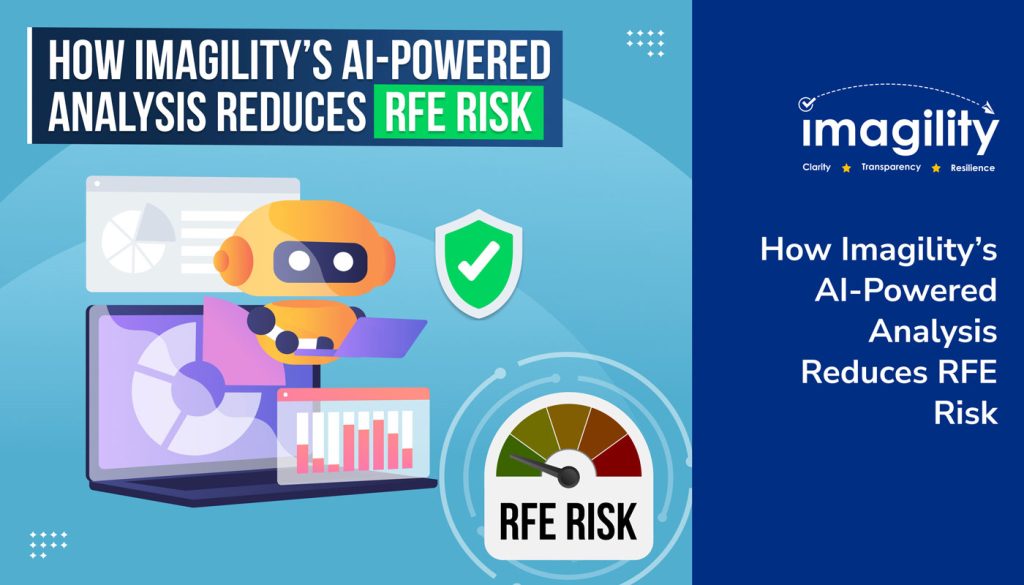When handling immigration petitions, getting a Request for Evidence (RFE) isn’t just frustrating, but it can slow things down, add unexpected costs, and put a client’s entire case at risk. For attorneys, avoiding RFEs isn’t just about getting the paperwork right. It’s also about keeping clients confident and cases on track. That’s where Imagility’s AI-enabled petition analysis makes a real difference.
Why RFEs Happen
USCIS issues RFEs when they find missing, inconsistent, or insufficient information in visa petitions. Common triggers include
- Inadequate proof of a specialty occupation (for H-1B)
- Poorly documented employer-employee relationships
- Insufficient wage level justification
- Incomplete or vague job descriptions
- Degree mismatches or unclear eligibility criteria
Even experienced attorneys can occasionally overlook minor details, especially when juggling hundreds of petitions or under tight deadlines.
Enter Imagility’s AI-Enabled Petition Analysis
Imagility takes a proactive approach to preventing RFEs by using AI to review petitions before submission. Here’s how the platform helps attorneys build stronger, more compliant petitions
- Structured Analysis Across 9 Critical Factors
Imagility’s AI reviews each petition across multiple compliance and quality benchmarks, including specialty occupation, SOC code accuracy, job duties, education match, employer-employee relationship, wage level, and more.
- Real-Time Risk Alerts
Instead of catching issues late in the process, the system flags potential problem areas early, giving you time to fix or supplement the petition before it’s filed.
- Data Consistency Checks
The AI scans for inconsistencies between forms, supporting documents, and job descriptions, something that’s easily missed during manual reviews.
- Evidence Suggestions
When a petition falls short on specific criteria, Imagility suggests supporting documents and evidence that can strengthen the case and reduce ambiguity.
What This Means for Attorneys
By incorporating AI into your petition workflow, you gain
- Lower RFE risk and faster processing
- Improved petition quality and consistency
- Increased confidence in submissions
- More time to focus on strategy and client advising
Real-World Results
Attorneys using Imagility report a noticeable drop in RFEs due to strengthened documentation and better pre-submission checks. In some firms, RFE rates dropped by over 40%, significantly improving approval rates and client satisfaction.
Conclusion
RFEs can feel inevitable, but they don’t have to be. With Imagility’s AI-enabled analysis, immigration attorneys can stay one step ahead, catching red flags before they become costly delays. Whether you’re managing a small caseload or operating at scale, smarter petition review tools are no longer optional but essential.
Book a free demo to see how Imagility can help your firm reduce RFEs and deliver better results for your clients.
Helpful Resources
RFE Playbook
RFE Response Builder Brochure
Navigating H-1B RFE Challenges: A Case Study with Imagility’s Response Builder
A Peek into RFE documents
RFE Response Builder
RFE: What is USCIS Request for Evidence & RFE Response Time?
Building RFE Responses: Essential Tips for IT Employers










